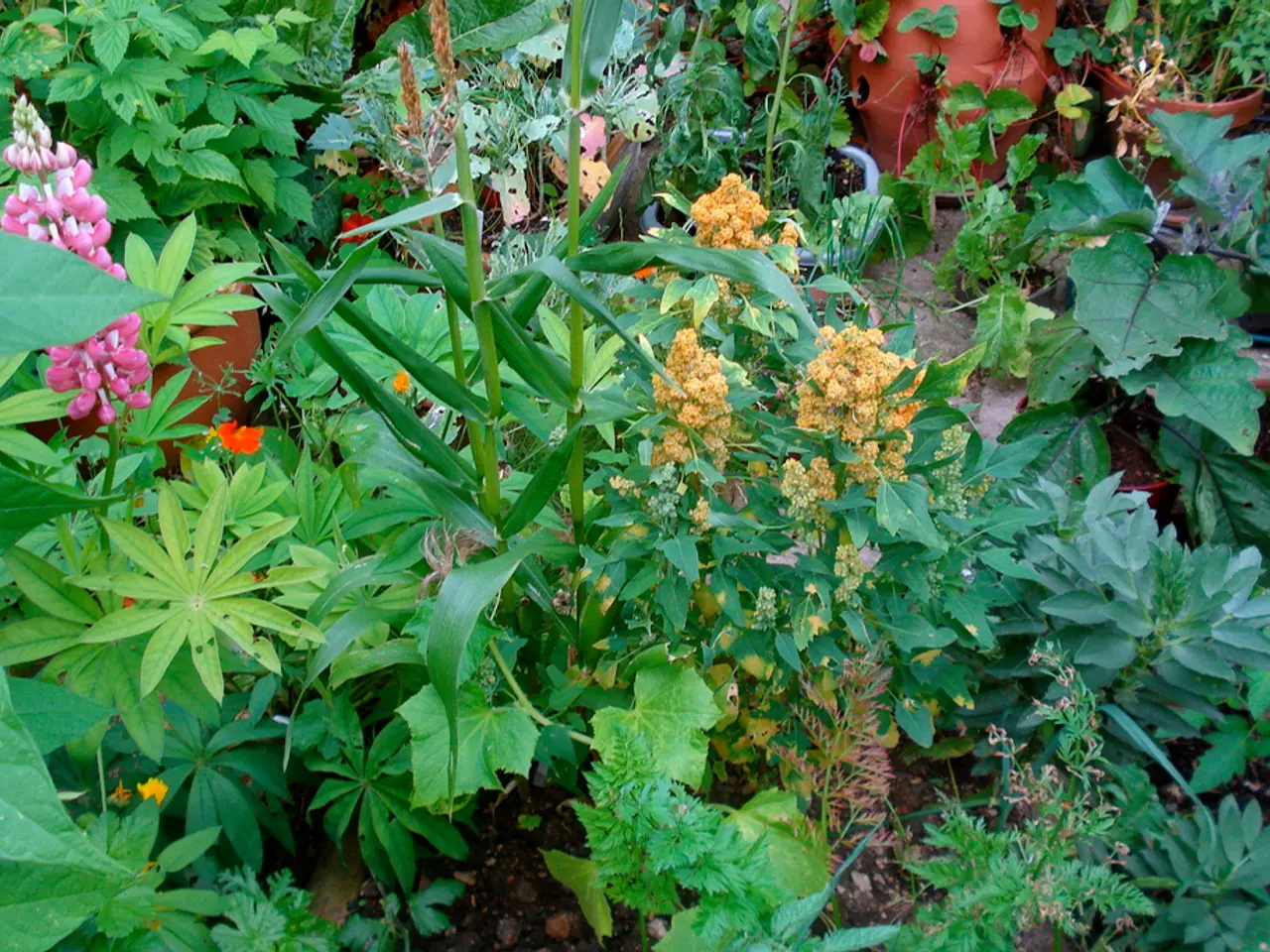Cultivating Connections and Knowledge through Gardening, Fosterings a Sense of Community
Community gardens are transforming vacant lots into vibrant hubs for neighbour connection, fostering meaningful relationships and lifelong learning across generations, cultures, and communities. These inclusive spaces provide a platform for shared activity, knowledge exchange, and cultural connection.
One of the key ways community gardens achieve this is through intergenerational knowledge transfer. Older adults pass down traditional gardening skills and place-based ecological wisdom to younger people, preserving cultural heritage and promoting lifelong learning. This exchange of knowledge includes innovative growing techniques like hydroponics and aquaponics, as well as traditional growing methods passed down through generations.
Another important aspect is cultural exchange. Gardeners share plants, seeds, and stories from diverse cultural backgrounds, increasing intercultural understanding and enriching the community’s social fabric. This sharing extends to food traditions, with cooking demonstrations in garden spaces and recipe exchanges deepening cultural connections.
Collaborative work and social bonding are also crucial in community gardens. Joint activities such as garden workdays and tool-sharing foster teamwork, trust, and a shared sense of identity and place attachment among participants. These shared experiences help to break down cultural barriers and build genuine friendships.
The garden community offers a space for respectful dialogue, collective problem-solving, and emotional resilience, supporting sustainable behaviour and personal growth. This emotional and cognitive support is especially valuable in urban environments, where stress levels can be high.
Community gardens are also accessible and inclusive. They provide opportunities for those who might lack personal growing space—such as urban residents, elderly, and low-income individuals—to connect socially and engage in meaningful learning about food cultivation and healthy living.
Urban farming initiatives offer opportunities to combine gardening skills with meaningful community service. Volunteering with food justice organizations, such as food banks and community kitchens that operate urban farms, can address food access in your neighbourhood.
To get started with a community garden, connect with three to five committed families for initial planning and setup phases. Scout sunny spots with at least six hours of daily sunlight and accessible water sources. Partnering different cultural groups to design garden sections that showcase various growing traditions and plant selections fosters genuine friendships.
School garden programs create opportunities for hands-on learning, strengthening connections between students, educators, and community members. Math concepts can flourish in garden settings, and science lessons become tangible as children observe photosynthesis, study insect ecosystems, and conduct soil pH experiments.
Seasonal gatherings can celebrate both gardening successes and personal breakthroughs, while harvest festivals provide opportunities for community members to prepare dishes using garden-grown ingredients while sharing family stories behind each recipe.
Community gardens transform outdoor spaces into venues for emotional healing and community support. They provide a social infrastructure where individuals of different ages and backgrounds come together to collaborate, share traditional ecological knowledge, and exchange stories about culturally significant plants, creating strong intercultural and intergenerational bonds.
[1] Bolling, N. (2019). Community Gardens as Sites of Intercultural Exchange and Social Cohesion. Journal of Urban Agriculture, 18(1), 3-14.
[2] Hemenway, T. (2012). The Productive Garden: Growing Food in Small Spaces. Chelsea Green Publishing.
[3] Krasny, M. E., & Tidball, K. G. (2012). The Community Food Garden as a Vehicle for Sustainable Community Development. Journal of Sustainable Agriculture, 36(5), 571-587.
[4] Lum, K. A., & Johnson, J. (2016). The Role of Community Gardens in Stress Reduction and Mental Health. American Journal of Public Health, 106(10), 1718-1724.
[5] McMullen, J. (2013). Community Gardening as a Tool for Social Change. The Journal of Environmental Studies and Sciences, 3(4), 380-391.
- The intergenerational knowledge transfer in community gardens allows older adults to pass down writing skills, such as traditional gardening techniques, to younger people, fostering lifelong learning and enriching personal growth in home-and-garden education-and-self-development.
- The cultural exchange within community gardens encompasses sharing seeds, plants, and lifestyle practices from diverse backgrounds, which promotes intercultural understanding, strengthens community connections, and encourages the exchange of food traditions and recipes, making a significant contribution to personal growth.
- Community gardens also play a crucial role in nurturing home-and-garden skills, as school garden programs provide opportunities for hands-on learning, enhancing connections between students, educators, and community members, which positively impacts education-and-self-development.




